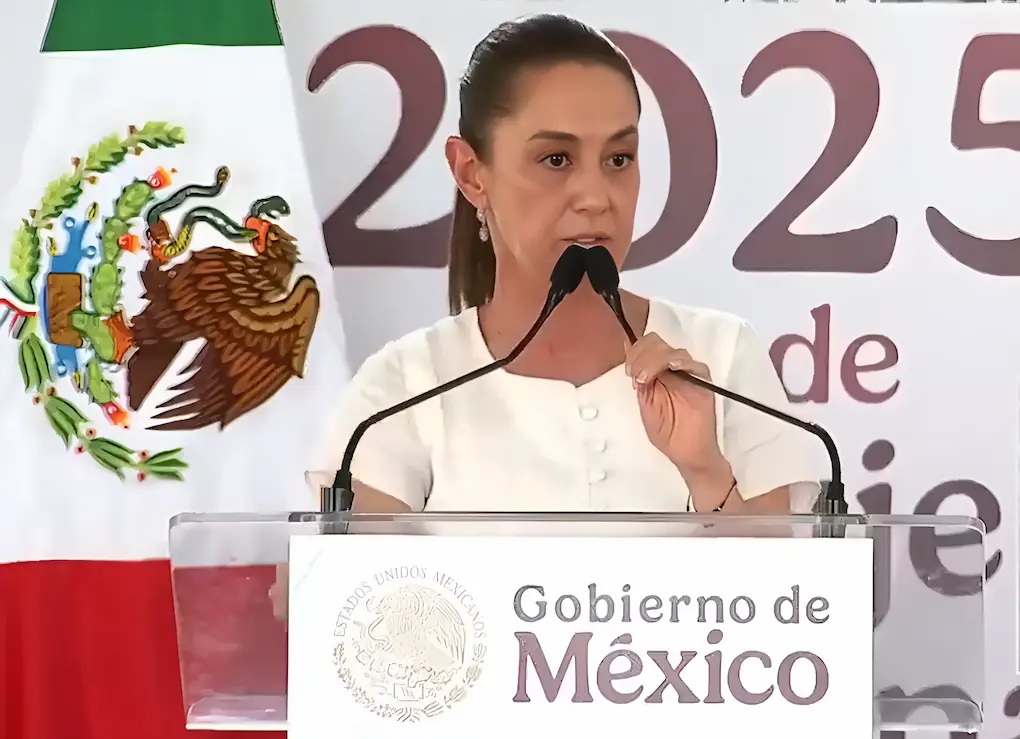
Mexican President Claudia Sheinbaum strongly opposes the proposed US remittance tax.
Tensions between Mexico and the United States have escalated as Mexican President Claudia Sheinbaum strongly opposes the proposed US remittance tax. The tax, which aims to impose a 3.5% to 5% levy on money sent by Mexican immigrants to their home country, has sparked outrage in Mexico. Sheinbaum has vowed to mobilize against the tax, calling it discriminatory and unjust.
The proposed tax could cost Mexico over $3.25 billion annually, affecting millions of families who rely on remittances from the US. As the debate intensifies, Mexico is preparing diplomatic countermeasures to challenge the legislation.
The US Remittance Tax Proposal
The US House of Representatives recently approved a bill that seeks to tax remittances sent abroad, targeting non-citizen immigrants. The bill, known as the “One Big Beautiful Bill,” has received strong backing from Republican lawmakers, while Democrats have opposed it.
Key Points of the Proposed Tax:
- A 3.5% to 5% tax on remittances sent by non-citizen immigrants.
- Exemptions for US citizens but affecting green card holders and visa holders.
- Projected revenue of $3.25 billion annually, impacting Mexican families.
- Expected implementation by 2026, pending Senate approval.
Mexico’s Response: A Diplomatic Battle
President Claudia Sheinbaum has condemned the tax, stating that it violates the 1992 US-Mexico treaty on double taxation. She has urged Mexican lawmakers and NGOs to lobby against the bill, warning that it could fuel the black market for money transfers.
Sheinbaum’s Key Statements:
- “Mexicans in the US keep the economy running. They already pay taxes. This bill is discriminatory.”
- “We will mobilize if necessary. We don’t want taxes on remittances from our fellow countrymen.”
- “This tax could push undocumented migrants toward informal money transfers, fueling illegal markets.”
Economic Impact on Mexico
Mexico is the second-largest recipient of remittances globally, with $64.75 billion sent home in 2024. These funds surpass revenue from oil exports, foreign investments, and tourism, making them a crucial pillar of Mexico’s economy.
Potential Consequences of the Tax:
- Decline in remittance flows, affecting millions of families.
- Rise in informal money transfers, bypassing official banking channels.
- Increased financial instability, as remittances contribute to Mexico’s GDP growth.
US-Mexico Relations: A Growing Rift
The remittance tax proposal has added strain to US-Mexico relations, which were already tense due to immigration policies and border security issues. Mexican officials argue that the tax targets vulnerable migrant workers, many of whom contribute to the US economy.
Political Fallout:
- Mexican Senate rejects the tax, calling it an injustice.
- US lawmakers debate the bill, with Republicans pushing for stricter financial controls.
- Mexico explores countermeasures, including reducing fees on future remittances.
Conclusion – Mexican President Condemns US Remittance Tax
The US remittance tax proposal has ignited a diplomatic battle, with Mexico vowing to fight back. As the bill moves through Congress and the Senate, its impact on Mexican families, migrant workers, and US-Mexico relations remains uncertain. With billions at stake, the outcome of this dispute could reshape financial policies between the two nations.
Stay updated with the latest news on Rapido Updates. Keep yourself updated with The World, India News, Entertainment, Market, Gadgets, Sports, and many more